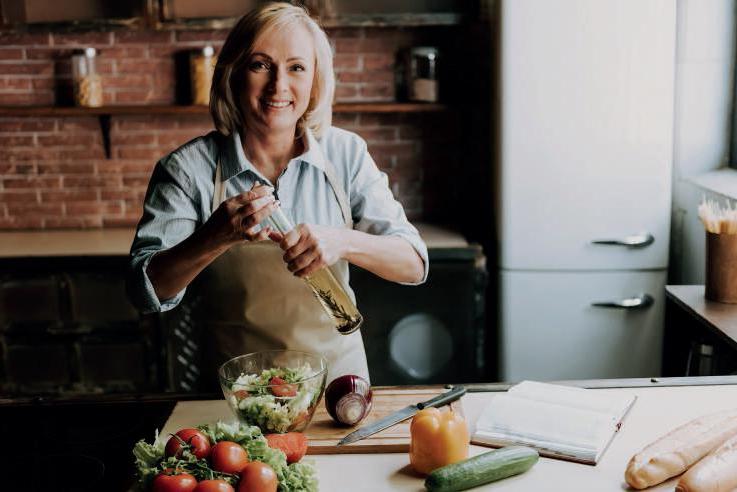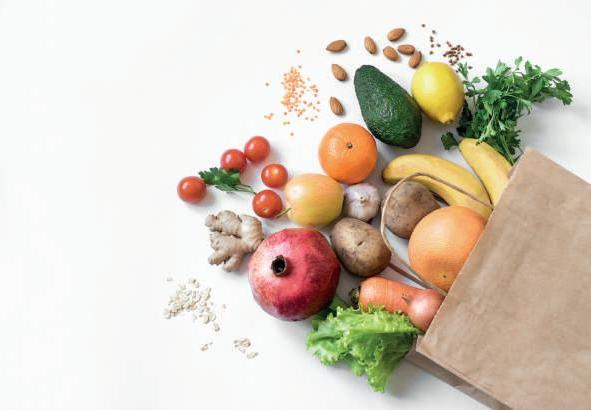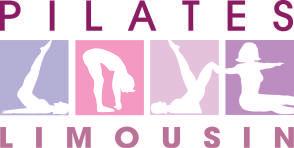
7 minute read
Health
are at approximately 22.72 million people* - of those confirmed cases 794,104 have died. My belief is that those who died, died ‘with’ covid and not necessarily ‘of’ it. Probably the hardest hit are those that are elderly or have underlying health conditions - cancer patients and people with suppressed immunity, people with respiratory problems etc. I don’t think the true numbers are known of how many people have actually died of covid alone. So I feel people should realise that all the hype in the media and the scaremongering tells a very different story to actual statistics and the probability that if you catch it you will have a 99.9% chance of survival. But let’s just get this clear; you can’t fully control whether you catch a cold, the flu, or COVID-19. *https://ourworldindata.org/mortality-risk-covid You also can’t control how your body will react once it’s exposed to a pathogen. (A pathogen is a bacterium, virus, or other microorganism that can cause disease).
So how does your immune system work?
Advertisement
If our body senses foreign substances called antigens, the immune system works to recognise these antigens and get rid of them. What happens next is B Lymphocytes are triggered to make antibodies which are also called immunoglobulins. These are proteins that attach themselves to specific antigens. Once these antibodies are made we hold
Saski owns and runs Limelight Fitness and is a personal trainer and sports massage practitioner By Saski Ford
www.limelightfitness.wordpress.com
LIFESTYLE CHOICES

SO MANY PEOPLE ARE WORRIED ABOUT CONTRACTING COVID-19 THAT I WANT TO TALK ABOUT HOW EXACTLY THE IMMUNE SYSTEM WORKS
The data collected for confirmed cases
email: saskiford@yahoo.com onto them in case we have to fight the ▪ Innate which we are all born with like same germ again. skin that acts as a barrier, The same way that vaccines prevent us blocking germs. from contracting some diseases, the ▪ Adaptive as we go through our lives antigen is administered into the body our immunity develops as we become without making the person poorly, but it exposed to germs and diseases and also gives the body the required tools to make when we get immunised. antibodies that protect the person should There are many different factors that they catch the germ. determine your body’s response. Some you An antibody can lock onto an antigen but it can’t destroy it without the help of the T cells. T cells destroy antigens tagged by antibodies or When it comes to your immune system, your daily actions can make all the difference can impact, like nutrient deficiencies of which the vast majority of us have, and others you can’t do anything about, like your age. cells that are infected or Remember, no magical changed somehow. T cells can also trigger supplement, superfood, diet plan, or other cells to do their jobs, cells called exercise routine can guarantee you’ll Phagocytes. stay healthy. Antibodies are great at neutralising poisonous or damaging substances (toxins) and they also activate a part of the immune system called ‘complement’ or the ‘complement cascade’ which is a group of proteins that help to kill viruses, bacteria The scientific literature shows us that there is a lot of evidence that lifestyle interventions can contribute to an improved resistance against viral infections and a reduced risk of a serious course of disease. When it comes to your immune system, your daily actions can or infected cells. make all the difference. Focus on All of these things combined offer the body constructive behaviours that might help protection against disease. This protection you feel just a little bit more in control. is called immunity And that could help ease the anxiety and stress that come with all the uncertainty. We have 3 types of immunity: On the following page, you will find the 6 ▪ Passive like a baby borrowing areas you need to be concentrating on, antibodies from the mothers breast milk allowing your immune system to work to for short term immunity. its full potential.
HAIRDRESSER
ANNETTE VAN ES
Chez Martin 16150 Pressignac
For an appt please contact: 05.45.71.56.02 06.50.23.61.37 annette.vanes@orange.fr
siret: 518 364 989 00013
BY MICHAEL WILLIAM PARK

Hair designer with many years’ experience, including the Vidal Sassoon team. My salon is based in the heart of Le Dorat in the Limousin.
19 Place Charles de Gaulle. 87210 Le Dorat T. 06 47 43 01 66
Ian Scott - Coiffeur anglais
Swedish Massage Sports Massage Reflexology Myofascial Release EFT
Mobile Service from 87440 well-beingtherapies emmajhodgson@hotmail.co.uk 0656 872967 (Fr mob) 07870 667159 (UK mob)


�Depts 86 & 87 �32 plus years’ experience �Professional colouring and cutting services
READ REVIEWS ON ! www.facebook.com/mobilecoiffeur
Nicholas SEAGRAVE M.B.P.s.S. Psychologue / Psychologist
PSYCHOTHERAPY AND COUNSELLING SERVICE

Face to Face / Skype / Home Visit www.psychologist-seagrave.com
15 Place d’Armes 86150 L’ISLE JOURDAIN Email : seagrave.psy@gmail.com Mob. : 07 77 26 10 63 N° ADELI 86 93 03 86 7
The British Psychological Society

Fontfaix le Haut 16260 Cellefrouin 05 45 84 91 79 / 06 47 24 34 61 www.underthelimetree.com email: nikki@underthelimetree.com
Spa days / Spa Nights: hut tub, massage + lunch / supper + b&b. Gift vouchers available. Specialist in Hot Stones Massage, Indian Head, Reiki, Facelift Rejuvenation, Shiatsu Veggie/Vegan lunches & dinners ‘pop-up’ Cooking classes with Nikki Digital Photography & Knife-making workshops with Sean

THE 6 MAIN LIFESTYLE CHOICES
SUNSHINE
Vitamin D, also known as 'the sunshine vitamin', has a crucial role in human naive T cell activation. Therefore, low levels of vitamin D could result in defective T cellmediated immune responses and compromised immunity to pathogens. So keep your levels topped up by enjoying time outside in the sun, it’s that simple. Even more important during the winter months when the we have less sunshine. HYDRATION Drink water regularly throughout the day, every day. Avoid too many sugary drinks. Alcohol weakens the immune system and also dehydrates you. Thus, alcohol use and especially heavy use undermines your body’s ability to cope with infectious disease. Alcohol consumption is also known to increase symptoms of depression, anxiety and fear, so it’s not a good coping mechanism, neither in the short nor long term, although you might think that it will help you deal with stress, it doesn’t.
EXERCISE
Moving regularly - don’t live a sedentary lifestyle. Exercise stimulates or kickstarts some normal immune processes. When you engage in any kind of physical activity that gets your heart rate up for a sustained amount of time—say, a 30-minute brisk walk or jog, a bike ride, or even some tennis volleying—your body senses it as a type of physiological stressor. As a result, it deploys certain types of white blood cells. RELAX Stress impairs our immunity. It disrupts the regulation of the cortisol response which can suppress immune function. Chronic stress can decrease the body’s lymphocytes (white blood cells that help fight off infection). The lower your lymphocyte count, the more at risk you are of catching a virus. How do we lower stress? Meditation, yoga, mindfulness, optimising sleep and eating well (yes it’s all connected!) can all help in mitigating the negative impact of stress on our lives.
HEALTHY FOOD
Eating real whole foods – fruits and vegetables, nuts, legumes, fish and healthy fats and reducing the intake of ultraprocessed foods. Try to eat a good range of foods each day. Don’t beat yourself up if you have an ‘off’ day, just make sure that you don’t have too many of them! Eat the right amount of calories to avoid or lose excess body fat, obesity-related conditions seem to
worsen the effect of COVID-19.
SLEEP
For adults, achieving between 7 and 9 hours of sleep per night is the goal. You may need more or less, finding that perfect amount of sleep for you and aiming to achieve that consistently is key. Declines in the quality and/or quantity of sleep can affect our immunity, leaving us more susceptible to illnesses including viruses. During sleep, the immune system releases proteins called cytokines. Certain cytokines fight infections and inflammation, and help us respond to stress.
Couples Counselling
Face-to-Face or

86150 Queaux
www.rootscounselling.fr • Mental Health • Addiction
Jill Martin MSc, Counsellor


Siret 88116179800015












